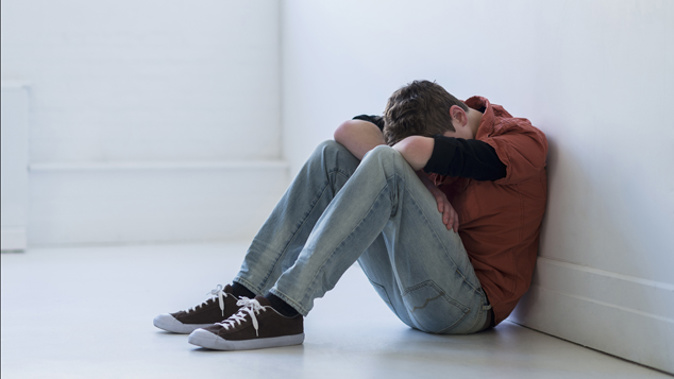
PLEASE NOTE: This article discusses mental health and suicide.
Wait times for children seeking mental health treatment have more than doubled in Wellington over the last four years.
It comes as mental health advocates and those on the front line warn of a mental health crisis in New Zealand – and have called on the Government to do more to fix what has been described as a broken system.
Newstalk ZB can reveal wait times for mental health treatment for those under 18 in the Wellington region has jumped from almost 28 days in 2018, to closer to 70 days last year.
Children were waiting even longer in the Rotorua region – numbers show the wait time has rocketed from 42 days to 76 days over the same period, according to Te Whatu Ora/ Health New Zealand data.
Data from the Auckland region shows the average number of days children waited for mental health treatment increased to 31.5 days last year, from 20 years four years ago.
The figures come as no surprise to one 20-year-old Wellingtonian, who struggled to access mental health support when she was suicidal from the age of 16.
She said money can also be a barrier for young people seeking help through the private system, especially if they don’t have parental support.
She eventually found a private therapist at age 19 when she could afford it herself – after seeking a referral from a GP and being told it was “pointless”, as there was a two-year wait.
“I’m sure there are a lot of people like me, where it’s a miracle they’re still alive,” she said.
Te Whatua Ora/ Health New Zealand has admitted the wait times are “longer than [they] would like” but assured people with the greatest need are prioritised and seen urgently if necessary.
Meanwhile Health Minister Ayesha Verrall said the Government’s working to identify ways to train more people in child and adolescent psychiatry.
But she pointed out the Government has a number of targeted programmes specifically for young people to provide support in these challenging times.
“It’s important to understand that change on this scale takes time, but since 2019 new and enhanced mental health and addiction services have become available in every District of New Zealand.”
National Mental health spokesman Matt Doocey said the statistics are tragic and underlines the true extent of New Zealand’s mental health crisis.
He puts part of the issue down to health workforce shortage – particularly in Wellington.
“The biggest thing we can do to address the mental health workforce crisis in New Zealand is to retain our current workforce in our roles.”
He said New Zealand’s mental health crisis has become such a major issue, that the Government needs to appoint a stand-alone Mental health and suicide prevention minister.
“Mental health’s been a poor second cousin to physical health for a long time, and you see that within ministerial roles,” he said.
He said the Health Minister’s focus is often pulled in many different directions – meaning issues around mental can be neglected.
“To have a standalone mental health minister who would solely focus on mental health and addictions and suicide preventions... would actually drive a lot of change.”
That’s a call that’s found favour with the College of Clinical Psychologists Strategic Advisor Paul Skirrow, who said mental health often falls to the bottom of the list for health agencies to think about.
“A lot of people in the mental health world are saying, this needs proper attention and if the only way to do that is to separate it from physical health, then that needs to be done.”
He said his office receives a call most weeks from distressed people unable to find a psychologist.
“Anecdotally, and from psychologists I know -- they’re talking about people who are really at risk, suicidal ... and being turned away by community mental health teams or child and adolescent mental health teams,” he said.
Meanwhile, Mental Health, Addiction & Intellectual Disability Service [MHAIDS] executive clinical director Paul Oxnam said wait times for the Child and Adolescent Mental Health Service in Wellington have been impacted by growing demand for services, and increasingly complex needs.
“MHAIDS continues to experience staffing challenges in the face of a local and national shortages of appropriately-qualified mental health professionals.
“Recent recruitment successes have, however, resulted in lower vacancy rates for CAMHS services in the former CCDHB district compared to last year.”
Verrall says Budget 2022 included $100 million over four years to address gaps, including $18.7 million for Child and adolescent specialist mental health and addiction services.
Where to get help
If it is an emergency and you or someone else is at risk, call 111.
For counselling and support
Lifeline: Call 0800 543 354 or text 4357 (HELP)
Suicide Crisis Helpline: Call 0508 828 865 (0508 TAUTOKO)
Need to talk? Call or text 1737
Depression helpline: Call 0800 111 757 or text 4202
For children and young people
Youthline: Call 0800 376 633 or text 234
What’s Up: Call 0800 942 8787 (11am to 11pm) or webchat (11am to 10.30pm)
For help with specific issues
Alcohol and Drug Helpline: Call 0800 787 797
Anxiety Helpline: Call 0800 269 4389 (0800 ANXIETY)
OutLine: Call 0800 688 5463 (0800 OUTLINE) (6pm-9pm)
Safe to talk (sexual harm): Call 0800 044 334 or text 4334
All services are free and available 24/7 unless otherwise specified.
For more information and support, talk to your local doctor, hauora, community mental health team, or counselling service. The Mental Health Foundation has more helplines and service contacts on its website.
Take your Radio, Podcasts and Music with you









